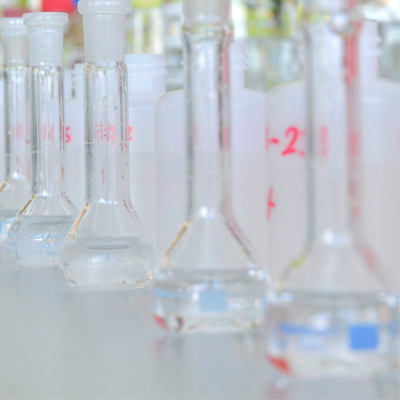A novel bio-based process able to remove and recover phosphorus from wastewater – developed by Cranfield University experts – has won almost half a million pounds of funding from OFWAT.
The Water Discovery Challenge – which aims to accelerate the discovery, development and adoption of promising new innovations for the water sector – will see 10 innovators share up to £4.5 million to solve some of the biggest challenges facing the water sector.
Cranfield University – alongside US-based biotechnology company Microvi – has developed a new technology which uses bacteria to remove phosphorus from water without the need for coagulants.
Currently the water industry uses metal-based coagulants to remove phosphorus but the new bio-mineral phosphorus removal (BMPR) process does not use them, and it also helps to recover nutrients as re-usable salts. The long-term goal of the research is to commercialise the technology to save money, decrease environmental impacts of nutrient management whilst meeting environmental goals.
The bacteria used in new bio-mineral phosphorus removal (BMPR) process doesn’t currently exist in wastewater systems, but Microvi has developed engineered biocatalysts which enables the selected bacteria stay within the wastewater so that it can be effectively introduced.
Phosphorus is both a pollutant and a resource, but using coagulants to remove it from wastewater can be expensive as well as problematic because of supply chain risks, while it also introduces additional chemicals into the water cycle. Initial tests completed at Cranfield university using the BMPR technology shows a 96% removal of phosphorus from wastewater from a range of initial concentrations from 4 to 80 mg/L. This is the same result as if using traditional coagulants.
Ana Soares, Professor of Biotechnology Engineering at Cranfield University, said: “Our approach not only addresses the pressing issue of phosphorus pollution in wastewater but also offers a sustainable solution by exploiting the amazing beneficial potential of bacteria without relying on traditional coagulants and enables to recover a finite resource that is phosphorus.
“This funding will enable us to accelerate the commercialisation of our technology, ultimately benefiting both the water industry and the environment.”
Helen Campbell, Senior Director for Sector Performance at Ofwat said: “This competition was about reaching new innovators from outside the sector with different approaches and new ideas, and that’s exactly what the winners announced today are doing.
“The products and ideas recognised in this cross-sector challenge will equip water companies to better face challenges of the future – including achieving sustainability goals and meeting net zero targets – all while providing the highest-quality water for consumers.”
Ajay Nair, Global Director of Commercial and Technical Strategy at Microvi, highlighted the significance of the technology: "Microvi is delighted to offer a novel biological solution for phosphorus removal from wastewater, particularly one that can provide a secondary value by producing biostruvite, which could be reused in fertilisers. Microvi continues to push forward, developing solutions for the water and wastewater industry by exploiting the best microorganisms for reduction of nutrients and contaminants.”


